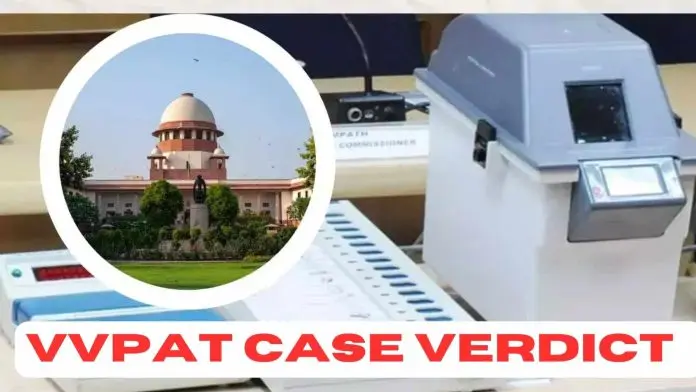Supreme Court Stands Firm: No Interference in Election Commission’s VVPAT Protocol
New Delhi: In a landmark session, the Supreme Court upheld the autonomy of the Election Commission amidst the heated VVPAT case, affirming that judicial intervention in the Commission’s processes is not warranted.
VVPAT Case: Supreme Court’s Trust in Electoral Integrity
The VVPAT case brought before the Supreme Court questioned the reliability of the EVM-VVPAT system. The Court’s stance was clear: the Election Commission’s constitutional status grants it the independence to manage electoral procedures without external interference.
Advocacy for Transparency: ADR’s Stand in VVPAT Case
The Association for Democratic Reforms (ADR), represented by Prashant Bhushan, argued for enhanced transparency in the VVPAT case. However, the Supreme Court maintained that it cannot reshape established thought processes or cast doubt on the Election Commission’s credibility.
Global Practices vs. Indian Challenges: The VVPAT Case Debate
ADR’s petition in the VVPAT case highlighted global voting practices, advocating for a system akin to European countries. Yet, the Supreme Court recognized the unique challenges India faces in conducting elections, which necessitate a tailored approach to vote verification.
Understanding VVPAT: Voter Assurance in the Digital Age
The VVPAT system serves as a cornerstone of voter confidence, allowing individuals to verify their vote’s accuracy. This mechanism is crucial in the VVPAT case, symbolizing the intersection of technology and democracy.
Technical Trust: Supreme Court’s Ruling on VVPAT Case
As the VVPAT case unfolded, technical aspects of the EVM system were scrutinized. The Supreme Court emphasized the need to trust the Election Commission’s technical report, reinforcing the integrity of the voting process.




